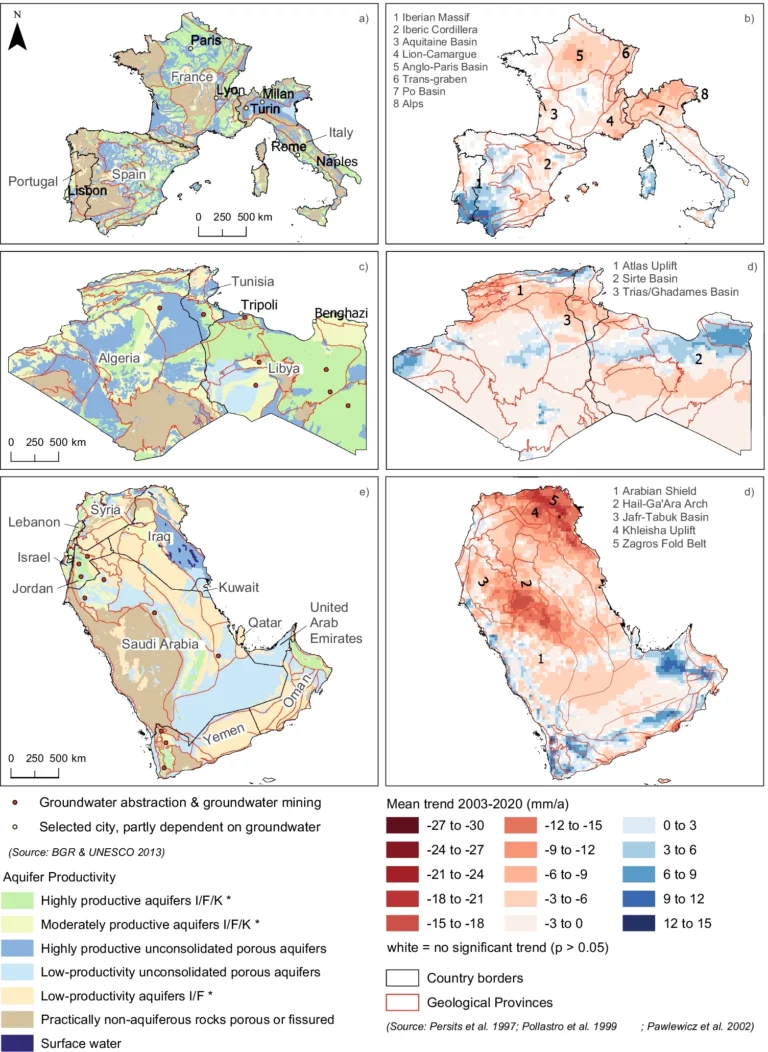Abstract: Groundwater resources in Euro-Mediterranean countries provide a large part of the population’s water supply and are affected to varying degrees by anthropogenic use and climatic impacts. In many places, significant groundwater-level declines have already been observed, indicating an imbalance between natural groundwater recharge and groundwater abstraction. The extent of changes in groundwater storage (GWS) in the period 2003–2020 is quantified for the Euro-Mediterranean region using the latest data from the Gravity Recovery and Climate Experiment (GRACE/GRACE-FO) satellite mission and recently reanalyzed ERA5-Land climate data from the European Centre for Medium-Range Weather Forecasts. The results are set in relation to the prevailing climate, the regional hydrogeological setting, and annual groundwater recharge and abstractions on country level. Analysis of the mean annual trends over the study period shows significant decreases in GWS in many countries of Europe, Northern Africa and the entire Arabian Peninsula. Overall, there are significantly negative trends in about 70% of the study region. The mean of the trends across the Euro-Mediterranean region is –2.1 mm/year. The strongest negative trends in GWS per country are observed in Iraq and Syria (–8.8 and –6.0 mm/year, respectively), but also countries in central and eastern Europe are affected by depleting aquifers. The results are a clear indicator of the already medium-term groundwater stress in the Euro-Mediterranean region, which is expected to increase in the future, and demonstrate the need for adapted strategies for sustainable groundwater management on a transregional scale in the context of climate change and population growth.

Xanke, J., & Liesch, T. (2022). Quantification and possible causes of declining groundwater resources in the Euro-Mediterranean region from 2003 to 2020. Hydrogeology Journal, 1-22.

